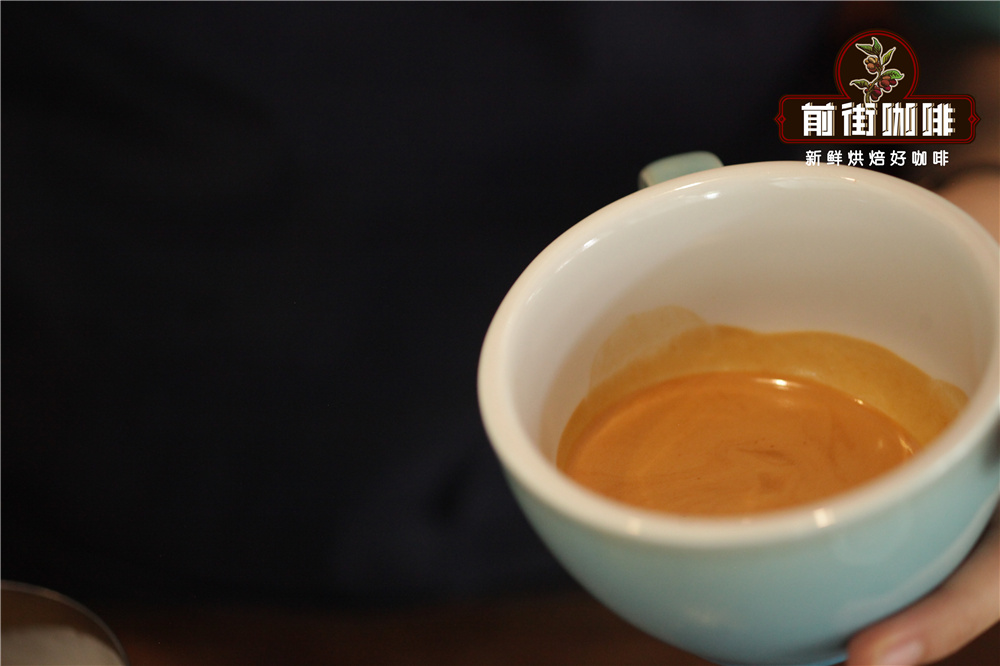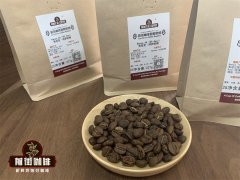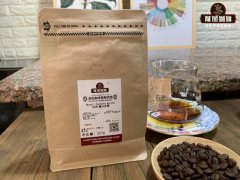How is the best coffee made? what are the key factors that affect the taste of coffee?
Coffee is already an indispensable way of life for most people, from instant coffee, Italian coffee, and now popular various brewing utensils to brew coffee, hand-brewed coffee and so on, and fine coffee is the darling of modern coffee drinks.
However, no matter what kind of coffee appears in front of people, the quality of coffee can not be ignored. To have a cup of high-quality coffee, the following key elements can not be ignored. Today, Qianjie Coffee will talk about those aspects in detail.
Cleanliness of appliances
The easiest way to improve the quality of coffee is to clean the brewing equipment. Natural coffee oil and small coffee particles cover the equipment, resulting in the transfer of scorched, bitter and sour taste from dirty equipment to new coffee. Don't cook food in a dirty pot-don't make coffee in a dirty coffee pot!
Freshness of coffee beans
Roasted coffee is extremely perishable and must be handled carefully and stored correctly. Whole bean coffee can maintain the best freshness for up to 2 weeks, while coffee powder can only maintain the best freshness in the surrounding environment for less than 1 hour.
The increase of the surface area of coffee powder promotes the rate of deterioration. Store coffee in a cool, dry place, away from light, heat, moisture and strong odors to maintain quality. Grind it in a burr grinder immediately before brewing to retain its flavor and aroma; old coffee loses its aroma, sweetness and tastes malt, paper and mild.
The grinding of coffee
Ground coffee reduces particle size, increases surface area, and plays a major role in producing aroma and flavor in the brewing process.
The degree of grinding must match the brewing method and depend on the length of the brewing period. The brewing time is short, Ruyi espresso and column brewers require ultra-fine ground coffee for instant and instant extraction, while French presses and immersion brewers take longer because it takes longer to soak and extract, so thicker ground coffee is needed. The particle size produced by the burr grinder is more uniform than the rotary blade grinder, which will produce richer and more complex coffee.

Drinking time
Brewed coffee is extremely perishable; coffee experts recommend that coffee be served as soon as it is ready. Keep brewed coffee in a glass bottle for only 30 minutes or in a heat-sealed glass bottle for 60 minutes. Holding for a long time can dissipate the aroma and reduce the sweetness and acidity of the coffee. And the dissolved substances in the coffee will continue to precipitate in the liquid, resulting in the coffee taste tends to be insipid, thick, sour and bitter.
The quality of water is crucial.
The proportion of water in coffee accounts for 98%-99%. The water used to brew coffee must be neutral, tasteless, suitable temperature and accurate.
The water suitable for brewing coffee must not contain any peculiar smell. The American Fine Coffee Association (SCAA) recommends that the total amount of soluble substances in water for brewing coffee should be between 50ppm~100ppm, free of iron, colorless, tasteless and non-precipitating substances, and the pH value of water should be between 6.5 and 7.5.
Water temperature is also particularly important in the brewing of boutique coffee. Hot water of 92 ℃ ~ 96 ℃ can fully extract the attractive taste and flavor of the coffee.
Too cold water can not fully extract it, while overheated water will burn the surface of coffee powder and make the coffee taste insipid and bitter.
The amount of water directly determines the ratio of water to coffee powder. For dripping coffee, the ratio of coffee powder to water should be 64 ounces of water, coupled with 3.25 ounces to 4.25 ounces of freshly ground coffee powder, that is, the "golden ratio" of dripping coffee.
This proportion, with the appropriate water temperature and purity, can extract 18% to 22% of the soluble matter in the coffee, thus keeping the total amount of soluble matter in the coffee at 1150TDS~1350TDS.
Important Notice :
前街咖啡 FrontStreet Coffee has moved to new addredd:
FrontStreet Coffee Address: 315,Donghua East Road,GuangZhou
Tel:020 38364473
- Prev

Where is the world's best coffee produced? what's the difference in the taste of all kinds of coffee?
The ideal conditions for the growth of coffee trees can be found all over the world, located in the equatorial zone between 25 degrees north latitude and 30 degrees south latitude, known as the bean belt. Fussy Arabica coffee grows best in high-altitude fertile soil, while healthier robusta coffee prefers higher temperatures and thrives on lower ground. From the species of plants, the chemical composition of soil,
- Next

Coffee beans with low acidity are recommended for coffee beans with low acidity.
We know that coffee beans from different countries and regions will have different flavors and tastes, and the different processing methods of coffee beans are also one of the reasons, such as coffee from Ethiopia, whose acidity is good and bright. So when it comes to coffee with low acidity, Front Street Coffee's top recommendation is coffee beans from Brazil. Brazil is not only the largest coffee in the world
Related
- Beginners will see the "Coffee pull flower" guide!
- What is the difference between ice blog purified milk and ordinary milk coffee?
- Why is the Philippines the largest producer of crops in Liberia?
- For coffee extraction, should the fine powder be retained?
- How does extracted espresso fill pressed powder? How much strength does it take to press the powder?
- How to make jasmine cold extract coffee? Is the jasmine + latte good?
- Will this little toy really make the coffee taste better? How does Lily Drip affect coffee extraction?
- Will the action of slapping the filter cup also affect coffee extraction?
- What's the difference between powder-to-water ratio and powder-to-liquid ratio?
- What is the Ethiopian local species? What does it have to do with Heirloom native species?

